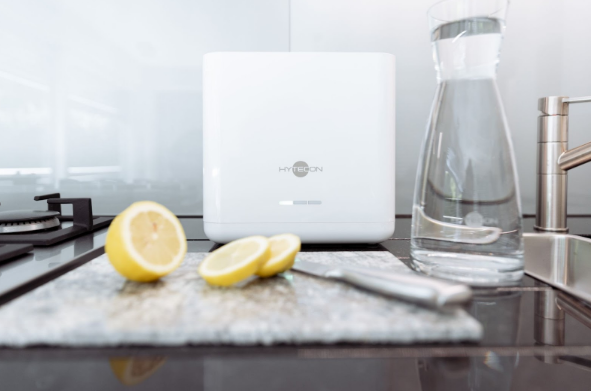Clean drinking water has been one of humanity's top priorities since the dawn of time. Humans can merely survive a few days without water, and the same holds true for most other living beings. Additionally, plants and, consequently, crops also rely on a clean water supply to flourish. Since this is such an important topic, a lot of research went into it over the years, and, due to technological advancements like HYTECON's Hypro Water, it is now possible to procure clean drinking water anywhere on the planet.
Historically, cities and settlements had to be built near sources of clean drinking water. Today, that isn't always feasible due to global population growth, geographical limitations, and the challenges that arise from this. However, that doesn't make clean drinking water any less essential.
To deal with this, countries have resorted to utilizing water treatment plants, which use various processes to filter and purify tap water. While this is very effective and has been done for decades, it's not optimal either. Further, not all places on earth have access to water that was filtered by a water treatment plant.
Less economically advanced countries might not have the proper infrastructure to supply the whole population with clean drinking water, but that's not the only problem. Even countries with the necessary infrastructure might still have trouble supplying their citizens with clean drinking water.
Water treatment plants and the last mile problem
Modern water treatment plants are very effective and utilize various chemicals and processes like chlorine disinfection to get rid of contaminants, such as bacteria, industrial chemicals, or naturally occurring chemicals and minerals. That being said, they can also be responsible for harmful byproducts, such as trihalomethanes, which are created when chlorine reacts with organic matter in the water during disinfection.
At elevated levels, these trihalomethanes have been linked to various negative health effects, such as adverse reproductive outcomes or cancer. Additionally, drinking water can be contaminated after it was treated and has already left the plant.
Old pipes, natural disasters, and industrial chemicals that seep into the ground are just some of the factors that can lead to contaminated drinking water, even in well-developed places like Australia, Canada, or Germany. This is called the last mile problem since the contamination occurs between the water treatment plant and the consumer.
Solving the last mile problem with Hypro Water
To combat the issue of last-mile contamination, HYTECON developed Hypro Water, which is an industrial-grade water treatment system for private households. The innovative smart water filtration system utilizes HYTECON's patented Dynamic Twist Technology, which purifies drinking water with UVC-LED disinfection technology to destroy up to 99.99 percent of all contaminants present in it.
With this technology, water can easily be purified anywhere with electricity. In addition to UVC disinfection, the water treatment system makes use of activated charcoal, which can filter out any contaminants that couldn't be dealt with. The Hypro Water can treat three liters of drinking water per minute and can conveniently be attached to the tap. Further, unlike reverse osmosis filtration systems, it doesn't produce any wastewater.
Hypro Water is independently certified, internationally patented, and adheres to the highest industry standard (>400J/m²), which ensures contaminant-free drinking water. The system has a filter life of four months or 2,000 liters, and it has low energy consumption.
To avoid compromising consumer safety, Hypro Water does not use mercury-based UV lamps, and it regularly disinfects itself. Additionally, the water treatment system has an integrated aqua stop valve to prevent leakage.
With this water treatment system, any household is easily able to filter and purify drinking water right when it is coming out of the tap, effectively getting rid of any opportunities for contamination.
* This is a contributed article and this content does not necessarily represent the views of sciencetimes.com











!['Cosmic Glitch' in Einstein's Theory of General Relativity Could Be Explained in This New Scientific Tweak [Study]](https://1721181113.rsc.cdn77.org/data/thumbs/full/53435/258/146/50/40/cosmic-glitch-in-einsteins-theory-of-general-relativity-could-be-explained-in-this-new-scientific-tweak-study.jpeg)



